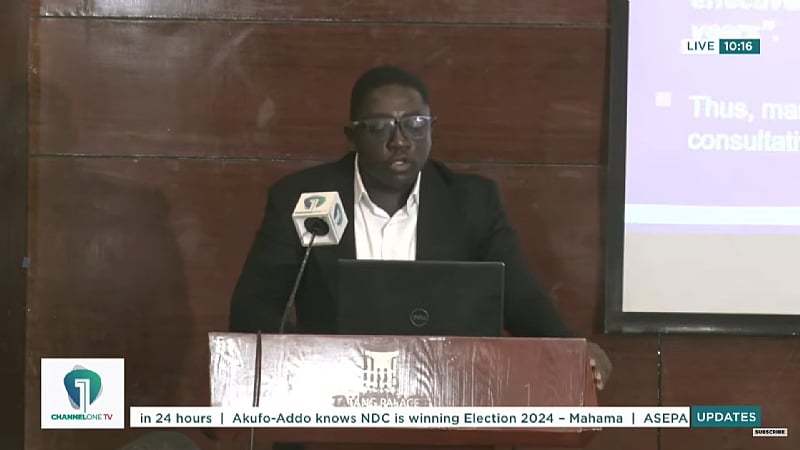IMANI Africa has raised significant doubts about the New Patriotic Party’s (NPP) proposed Gold Purchase Programme, believing it may be inadequate for addressing the pressing economic and currency-related challenges Ghana faces. Dennis Asare, a senior research associate at IMANI Africa, articulated these concerns at the organization’s “2024 IMANIfesto” event, where he critiqued the proposal touted by Dr. Mahamudu Bawumia, the NPP’s flagbearer. The initiative aims to strengthen the Ghanaian cedi by having the Bank of Ghana buy gold from local sources, particularly small-scale miners. However, Asare’s analysis suggests that while this plan seeks to stabilize the cedi by augmenting national reserves with gold, it may not produce the desired results, especially without broader structural reforms in place.
One of Asare’s primary criticisms focuses on the limited effectiveness observed in the initial stages of the Gold Purchase Programme. According to him, the implementation thus far has only led to a meager 3% reduction in the exchange rate. He posits that merely continuing this initiative without comprehensive structural changes may yield only minimal long-term benefits for currency stability. Asare emphasized that in addition to stabilizing reserves, the Bank of Ghana’s approach of buying approximately 20% of local gold production from small-scale miners must be scrutinized for its viability over time. He questions how the program will perform in years when output from small-scale mining does not increase, highlighting a potential flaw in relying heavily on this sector to support the national currency.
Additionally, Asare noted the complexities that arise from purchasing gold from large-scale miners using cedis. Many of these miners incur capital expenditures in US dollars; thus, even if they are compensated in cedis, they would still face the necessity of converting portions of their earnings back into dollars to sustain their operations. This conversion process could undermine the intended goals of the Gold Purchase Programme by inadvertently creating more pressure on the cedi’s exchange rate, as the demand for foreign currency persists. These intricate dynamics present a stark challenge to achieving a stable economic environment.
As the NPP’s promise continues to hang on the success of the Gold Purchase Programme, Asare cautioned that the exchange rate has been depreciating at a more alarming rate than the improvements seen since program implementation. He noted that while the depreciation had moderated somewhat, it still averaged more than 20% annually. Such statistics underscore the shortcomings of the programme in providing a sustainable solution for currency stability. Asare further points out that the potential for using gold as a buffer against currency depreciation hinges on the market conditions, specifically the prices of gold, which do not currently suggest promising returns in the near term, complicating prospects for any substantial impact on reserves.
The broader implication of Asare’s critique is a cautionary tale about policy reliance on single ventures without a robust support structure. The Gold Purchase Programme, as currently constituted, appears to lack the necessary components that would allow it to perform effectively within the existing economic landscape. As Ghana grapples with persistent challenges related to currency valuation and inflation, experts like Asare advocate for a multifaceted approach that integrates structural reforms—potentially transcending the gold purchase model to explore other avenues for enhancing economic stability. The difficulties associated with the present proposal call for a reevaluation of assumptions underlying the plan and a rethinking of the strategic steps needed to protect the cedi.
Ultimately, the discourse around the NPP’s Gold Purchase Programme not only highlights the immediate concerns regarding currency stabilization but also underscores the need for long-term strategic planning to enhance Ghana’s economic resilience. Achieving a well-balanced macroeconomic environment requires an understanding of how external market forces interact with local policy initiatives. Therefore, stakeholders must work collaboratively to create a more comprehensive framework that encompasses both currency stabilization mechanisms and avenues for economic growth beyond gold purchases.














